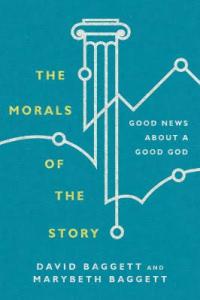One benefit of sitting around in transit—in cars and trains and planes and busses—is that I finally accumulated enough quiet minutes in a row to read a book I wanted to bring to your attention way back in May. You know, when it launched. But May blew by me and I was only part way through chapter one. And then June came and I was all the way into chapter three. And then July beat down the door and there I was, in a chair, in an airport, no distractions whatsoever except for five fluttering teenage girls taking turns with a sea-green prayer rug, dawning the somber black hijab over airy headscarves, bowing, kneeling, standing, and then flinging the covering aside and settling back, one by one, with brightly decorated packets of chips. They chattered and laughed and I turned my face once more to the page.
I normally try to write about books on Saturday, laboring under the vague delusion that Saturday will be the single day anyone might have time to lie around reading. But I am breaking my rule because this is a substantial and serious work, deserving a spot in the middle of the week. The book is The Morals of the Story: Good News About A Good God by David and Marybeth Baggett. Here is a comprehensive and excellent review by Spence Spencer. My thoughts and feelings I will now proceed to jumble together in no particular order.
First of all, I spent the whole book mourning my own inadequate education. There are so many gaps for me, mostly from college, but certainly from seminary as well. The modern way of educating the young and foolish—unsystematized smatterings of ideas relatively unconnected to each other and often divorced from reality—is a tragedy. As I settled into the first chapter the uncomfortable realization of there being so much I don’t know startled and unnerved me. Did I even take one philosophy class? Did I? I don’t think I did. As I read a deep longing to sign up for at least one term with the Doctors Baggett gripped me.
The Morals of the Story is a swift flying overview of a small mountain of philosophical names and concepts. As the people and ideas pass by you, you will find yourself desiring a class or a discussion group with someone properly educated. The book is perfectly suited for a small classroom experience with an instructor to fill in more background and lead intelligent discussions of the weighty and fascinating concepts introduced. Over and over again I lusted after a lecture hall and a good pen.
Nevertheless, even with not enough background and the meager paltry education of post post modernism, the issues the Baggetts raise are paramount and understandable enough for cultural and self examination. The question of how Christians engage the world—the tone, purpose, and manner of that engagement—is so critical at this precise moment. And the question of morality itself could not be more pressing. Being equipped to make a moral argument for the existence of God, first, but then for God being good and not evil, isn’t really something that should be optional. But does even the Christian know that God is good? That what he commands is good? And how would you know?
Circling around the conceit that it is morally bad to harm children just for the fun of it, the Baggetts effectively, and I might add with humor which only increases the thirst to lurk at their dinner table, illuminate the critical nature of moral knowledge, both philosophical and theological. It is not enough to just say, “Of course. That’s obviously bad.” Why is it bad? How do you know? Who was the origin of that judgment? If you don’t know, you yourself are on shifting sand. Surely you will crumble before the strange and perverse knowledge of this age. You will have nothing to say and no reason not to wander away to some other system, falling under the sway of someone else who has answered all those questions but come to the wrong conclusions.
I finished the book and sat back in my chair, stretching my legs painfully out before me, counting up the hours before I could climb into another chair and sit some more, only this time in a metal tube hurtling though the sky, supported only by the knowledge of someone I prayed knew what they were on about. I paged back through the book and was distracted by a group of twelve or thirteen orthodox Jewish men struggling through security. One by one they regathered their belongings and arranged themselves along the airport wall, facing, from the far flung distance of Casablanca, towards Jerusalem. They assumed the posture of prayer and sang and rocked. The Muslim couple and their baby in the chairs next to me averted their gaze, the fluttering group of fluttering teenagers long gone for some other flight. “Is God good?” I asked myself. “How do I know?” Turned back to page one and took out my pen.













